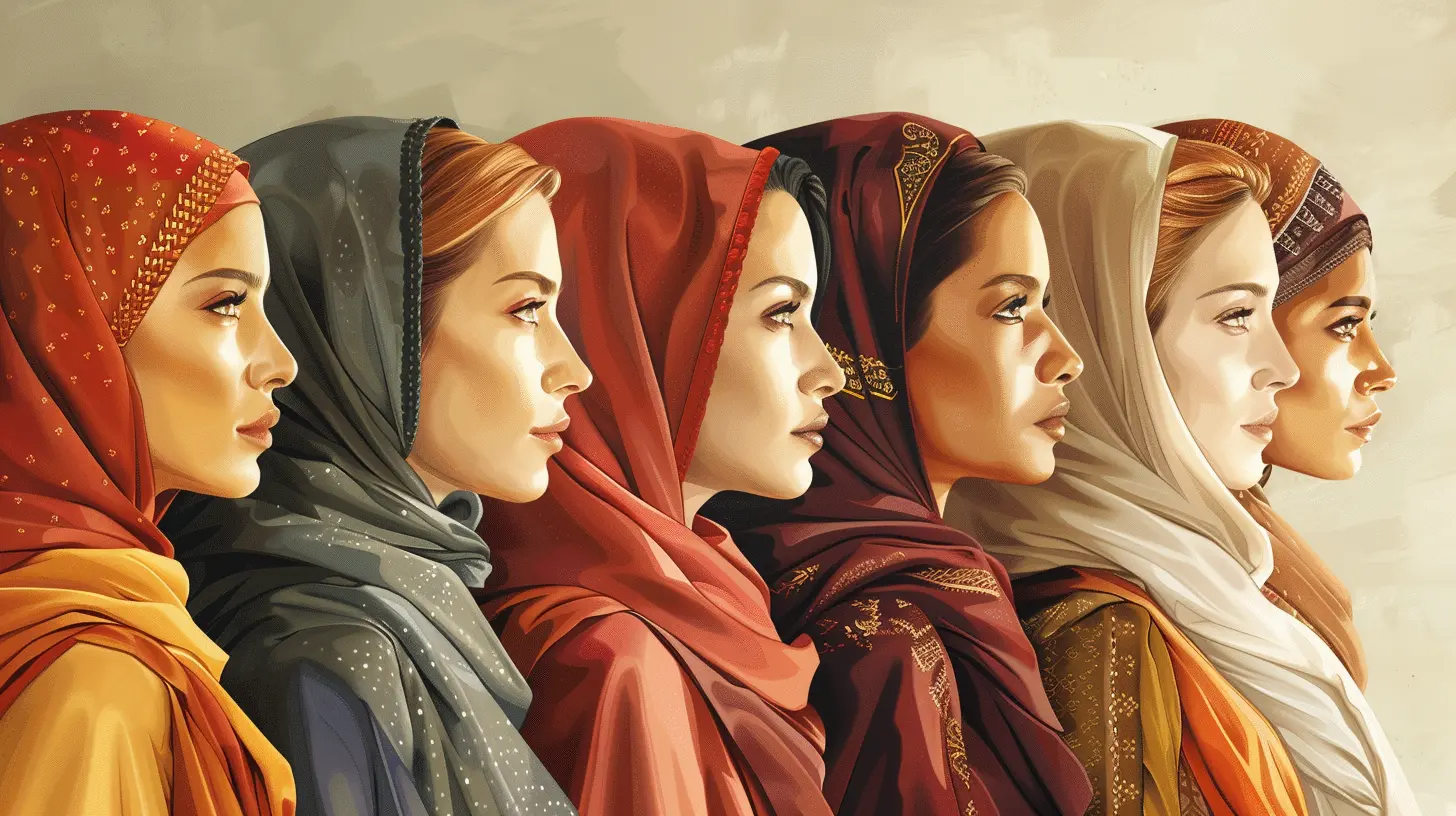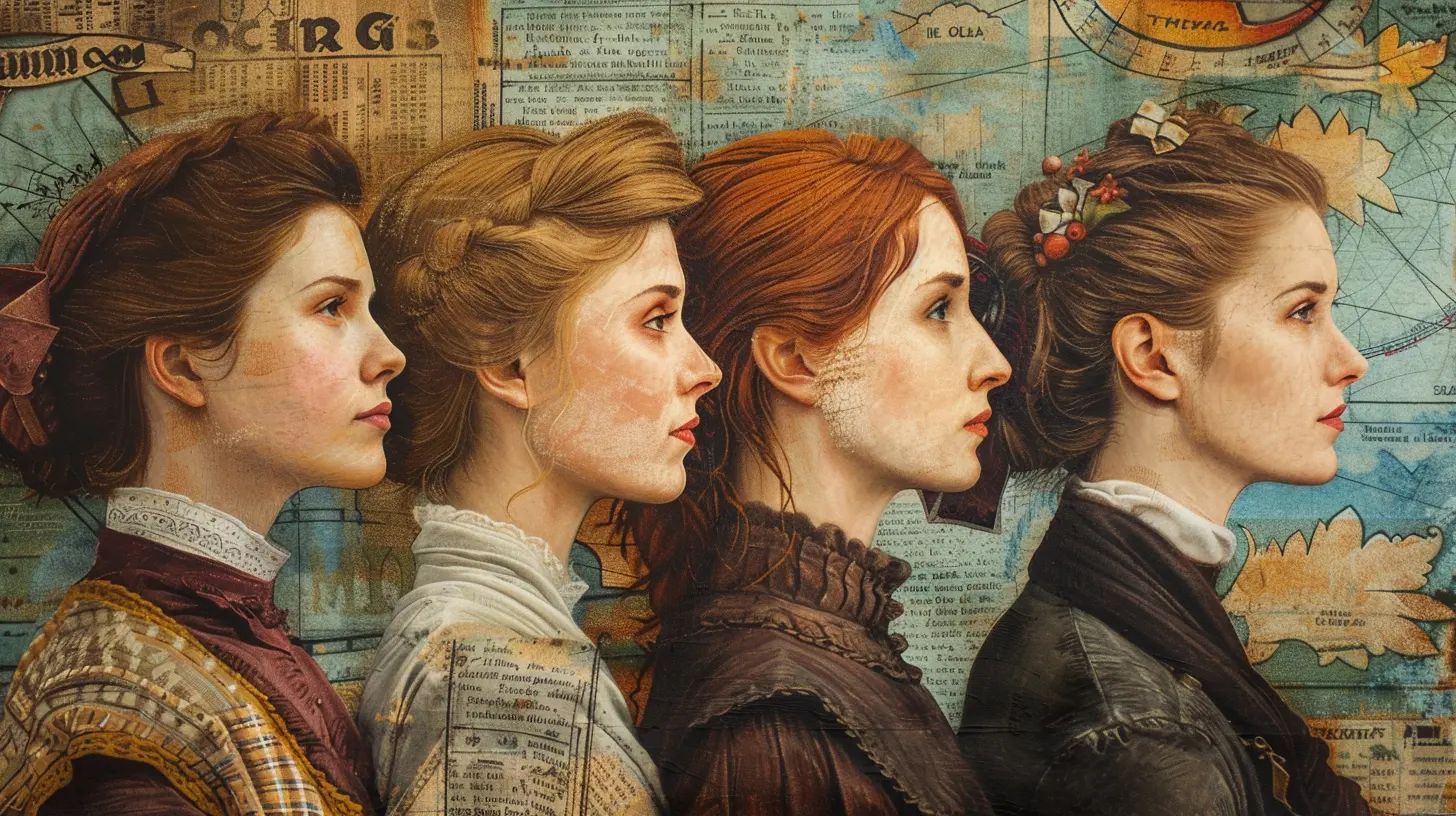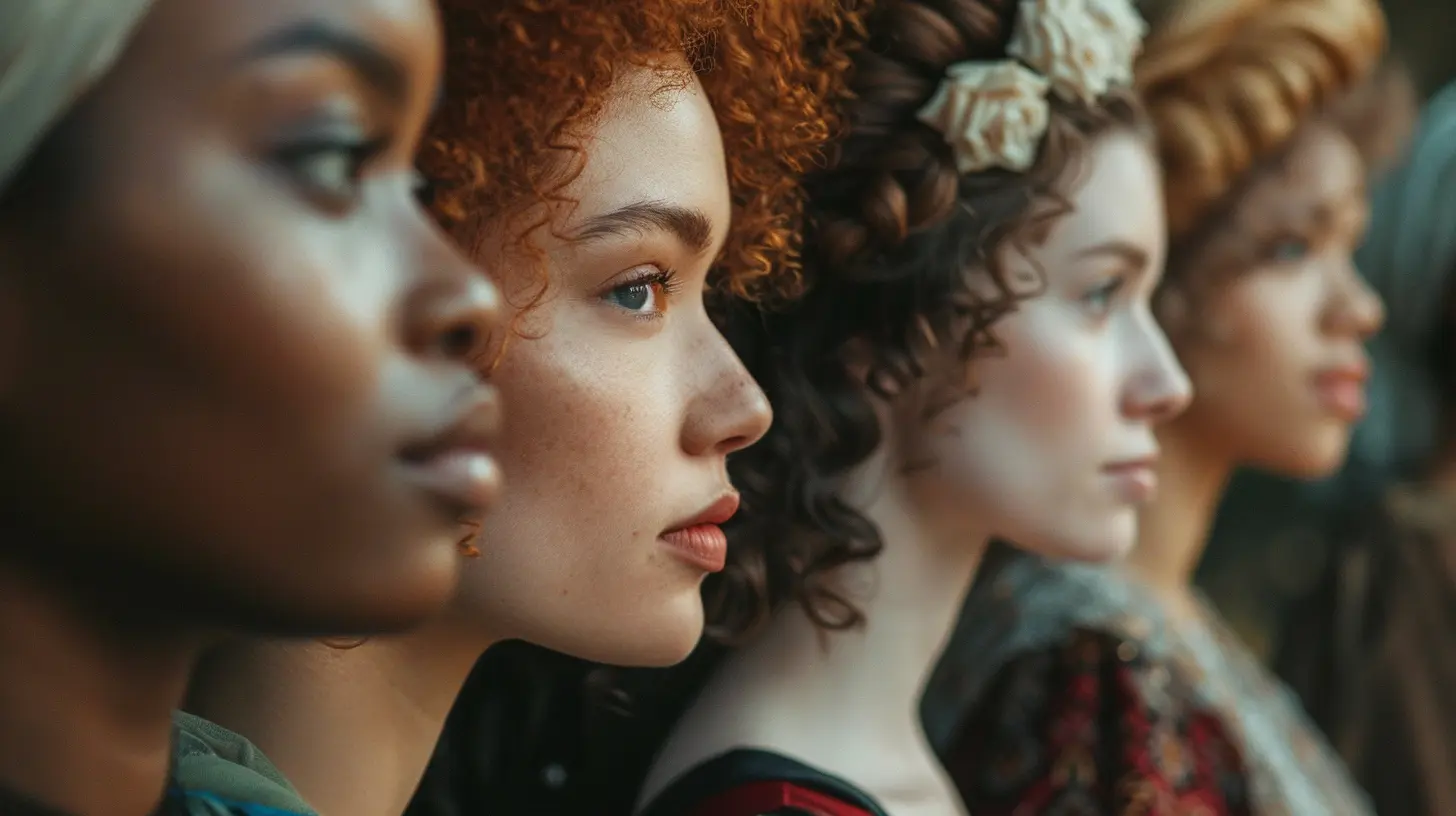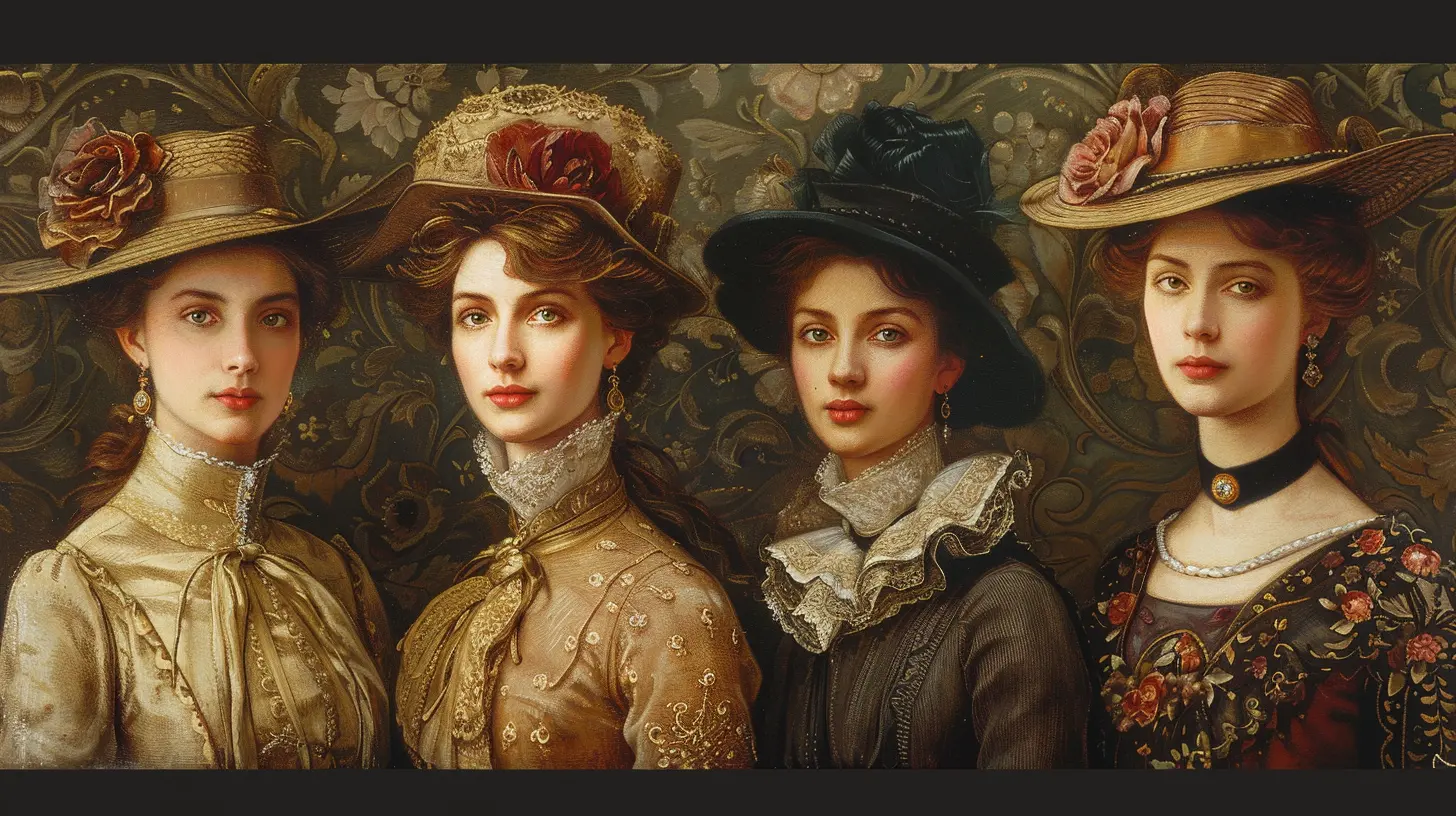The Role of Women in Shaping History
19 November 2025
History.
Often written in ink that favors men,
Tales of battles, crowns, and kings.
But let’s take a moment—
To listen to the whispers behind the throne,
To hear the echo of footsteps
That walked beside, not behind.
Because, friend,
The role of women in shaping history?
It’s not a supporting act.
It’s the chorus.
It’s the melody.
It’s the soul of the song we call humanity.

Her-Story: The Hidden Narrative
We’ve all cracked open history books filled with wars, empires, and revolutions. But how many times have we paused to ask—where were the women? The truth is, they were always there. Not just behind the scenes, but right in the thick of it.Whether they were leading rebellions, making scientific breakthroughs, raising voices for justice, or simply raising generations that would go on to change the world—women have always been part of the story. And it’s high time we told it right.

Ancient Beginnings: Powerful Women from the Start
Let’s dial the clock way back. Ancient civilizations weren’t all patriarchy and pharaohs. From the temples of Mesopotamia to the courts of Egypt, women played powerful roles.Take Hatshepsut, for example, the female pharaoh of ancient Egypt. She didn’t just rule; she redefined what it meant to be a ruler in a male-dominated world. Or Cleopatra, who used intelligence and political shrewdness to build alliances and expand influence. These women weren’t just surviving—they were thriving.
And don’t overlook the likes of Enheduanna, the world’s first recorded author—a woman—writing hymns and shaping spiritual life in Sumer circa 2300 BCE. That’s not just extraordinary; that’s poetic justice.

Warriors in Skirts: Breaking Stereotypes
Okay, let’s bust a myth: Women weren’t just homemakers or peacekeepers. They were warriors. Real, sword-swinging, battle-leading warriors.Ever heard of Joan of Arc? At just 17, she led French forces into battle during the Hundred Years’ War. That’s not just courage—that’s fire in the veins.
Or Rani Lakshmi Bai from India, who galloped into battle, sword in hand, child on her back, against British colonial forces. Her spirit still dances through Indian folklore.
Even the legendary Viking shieldmaidens—once thought to be mythical—are now supported by archaeological evidence. Women who faced war not from the sidelines, but at the frontlines.

Intellectual Powerhouses: Thinkers and Trailblazers
Let’s shift gears. Not all revolutions happen on battlefields—some begin in minds.Hypatia of Alexandria was a mathematician-philosopher who taught astronomy and philosophy in the male-dominated intellectual circles of ancient Greece. She held her own in a world that tried to silence her.
Fast-forward to the Enlightenment, and you’ve got Mary Wollstonecraft, who changed the game with “A Vindication of the Rights of Woman.” She didn’t whisper her opinions—she roared them into public consciousness.
Then there’s Marie Curie, a double Nobel laureate. Not only was she the first woman to win a Nobel Prize, but she also remains the only person in history to win it in two different sciences.
Smart? That’s an understatement.
Women and Social Movements: Voices That Moved Mountains
Now let’s talk about women’s role in shaping societies—not through blood and steel, but through words, will, and unwavering courage.Who can forget Sojourner Truth, standing tall in the face of slavery, racism, and sexism, asking, “Ain’t I a Woman?” That speech still echoes in the chambers of history.
Fast-forward to the early 20th century, and you’ll find Emmeline Pankhurst leading the suffragette movement. Chained to railings, enduring hunger strikes—because she believed women deserved the vote.
In America, Susan B. Anthony and Elizabeth Cady Stanton weren’t just activists—they were architects of equality. Their vision helped lay the groundwork for the 19th Amendment.
And let’s not forget Malala Yousafzai, a modern-day crusader for girls’ education, who faced bullets for books and still didn’t back down.
Hidden Figures: The Unsung Heroines
Not all heroes wear capes—or get chapters in textbooks.Think of the women behind the space race, like the brilliant African-American mathematicians Katherine Johnson, Dorothy Vaughan, and Mary Jackson, whose calculations enabled NASA to send humans to space. They were literal human computers in a racially segregated America—crushing both sexism and racism with every equation.
Or the countless nurses in war zones—Florence Nightingale in the Crimean War, Clara Barton in the American Civil War—turning chaos into compassion, saving lives with skill and guts.
History is crowded with women whose names we’ll never know, but whose footprints still mark the earth.
Breaking the Chains: Women Leading Liberation Movements
Women have always stood at the heart of liberation movements.In South Africa, Winnie Mandela stood steel-strong during apartheid, enduring exile, imprisonment, and surveillance.
In Burma, Aung San Suu Kyi (despite controversies later) became a symbol of peaceful resistance, spending years under house arrest for daring to defy a dictatorship.
In every nation torn by oppression, you’ll find women in the crowds, waving flags, nursing wounds, building bridges.
They weren’t just watching history happen. They were pushing it forward.
The Modern Muse: Women Changing the World Today
Let’s bring this closer to home—right here, right now.From Greta Thunberg, igniting a global climate movement with a sign and stubborn hope, to Kamala Harris, shattering glass ceilings by becoming the first female, Black, and Asian-American U.S. Vice President.
Look at Jacinda Ardern, former Prime Minister of New Zealand, who led with empathy during crises, from terrorist attacks to pandemics—proving that strength isn’t volume; it’s values.
From boardrooms to biotech labs, women today are reshaping business, science, politics, art, and more. The revolution is no longer televised—it’s lived.
The Quiet Revolution: Everyday Women, Everyday Impact
Maybe we're not all meant to be pharaohs or presidents. But let’s not kid ourselves—every single woman has the power to shape history.Mothers who raise children with courage and kindness. Teachers who spark minds and light futures. Nurses, farmers, engineers, artists, shopkeepers, social workers—all crafting legacies in ways that might not trend on Twitter, but ripple through generations.
Every big moment in history started with a quiet one. Every mighty oak? Once a seed.
Why Representation Matters: Seeing is Believing
Representation isn’t just about fairness—it’s about fuel. When girls see women leading, thinking, fighting, creating—they start to believe they can too.Because stories shape reality. And when we tell the whole story, including the role of women, we unlock the full power of our shared humanity.
What We Can Do: Passing the Torch Forward
So what do we do with all this?- Read women's stories.
- Teach them in schools.
- Celebrate them in our daily lives.
- Challenge stereotypes and biases.
- Support women's rights not as a favor, but as a fact of justice.
Because history isn’t just a list of dates and names. It’s a mirror.
And the clearer that mirror shows the reflection of all people—regardless of gender—the brighter our future becomes.
Final Thoughts: The Future is Female (And Male. And Everyone.)
Let’s face it:The role of women in shaping history isn’t optional or occasional.
It’s essential.
Timeless.
And undeniable.
So the next time someone asks who made history—
Turn the page.
Tell the tale.
And don’t leave the heroines out of the frame.
Because when women rise,
So does the world.
all images in this post were generated using AI tools
Category:
Social StudiesAuthor:

Eva Barker
Discussion
rate this article
1 comments
Antonia Mathews
This article beautifully highlights the often-overlooked contributions of women throughout history. It’s essential to celebrate their resilience and influence, reminding us that every voice and action has the power to shape our world. Thank you for sharing!
November 19, 2025 at 3:49 AM

Eva Barker
Thank you for your thoughtful comment! I'm glad you appreciated the article and the focus on women's contributions. Their impact is truly vital to our understanding of history.


